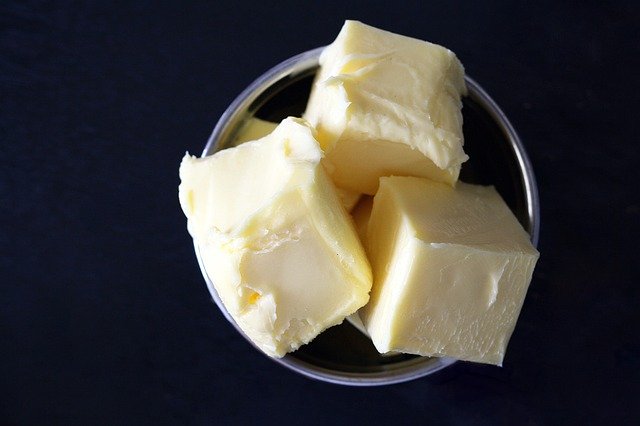Many of us remember the taste of home-made butter from our childhood, slightly different from that of butter currently available in stores. Why not make it yourself? Homemade butter can be really delicious and become your everday food, not only for breakfast. If you don’t know how to make butter, we come here to save your day. How to make butter?
How to make homemade butter?
To make butter we only need cream. This makes preparing it yourself at home very easy. Especially that cream is a product that can be bought in every store!
- Pour the chilled cream into a tall dish and beat until the fat separates from the buttermilk (using a mixer it will take about 7-8 minutes, and the kitchen work – 5 minutes).
- After the fat balls appear and the buttermilk is released, stop mixing. Strain the buttermilk on a strainer (you can drink it later), rinse the butter in cold water.
- Ready butter can be freely formed, wrapped in parchment or food film. Store in the fridge.

How to make homemade garlic butter?
Knowing the recipe for homemade butter, we can freely enrich its taste. Of course, the most popular and the most liked is garlic butter, an ideal addition to toasts, toast or just bread.
Preparation of garlic butter, if we have done it home, is very easy. After rinsing buttermilk butter, all you need is a 100 g serving (i.e. half a cube), add 2-3 large garlic cloves, salt and pepper, 2 tablespoons of chopped dill or parsley and squeezed, and mix well.
Is butter healthy?
There has been heated debate around butter for some time. Some avoid it completely, following the fat theory, which says that saturated fatty acids from butter and red meat are the cause of heart disease, atherosclerosis and heart attacks.
Others are fans of butter – proponents of fat diets add them to morning coffee and fry in clarified butter, claiming that it is very healthy fat. What’s the truth? As usual, it lies somewhere in the middle.
It is now known that food-derived cholesterol is not a real cause of high blood cholesterol, and trans fat is a much greater health risk than saturated fat.
At the same time, an excess of saturated animal fats is not recommended, and replacing it with vegetable oils (low in omega-6 fatty acids!) Promotes the overall well-being of the body.
Calories and nutritional value of butter
Butter is a food product with high nutritional value, but at the same time with a very high calorie content, because it consists almost entirely of fats. 100 g butter provides about 740 kcal.
It contains 82 g of fat, of which 50 g are saturated fats – mainly palmitic, stearic, myristic and lauric. About 20 g / 100 g are monounsaturated fatty acids – mainly oleic acid. Very important in terms of health fatty acids in butter are short chain fatty acids, whose length does not exceed 8 carbon atoms in the chain.
They are burned very quickly, they do not accumulate as spare fat, and even some sources suggest that they promote acceleration of metabolism.







